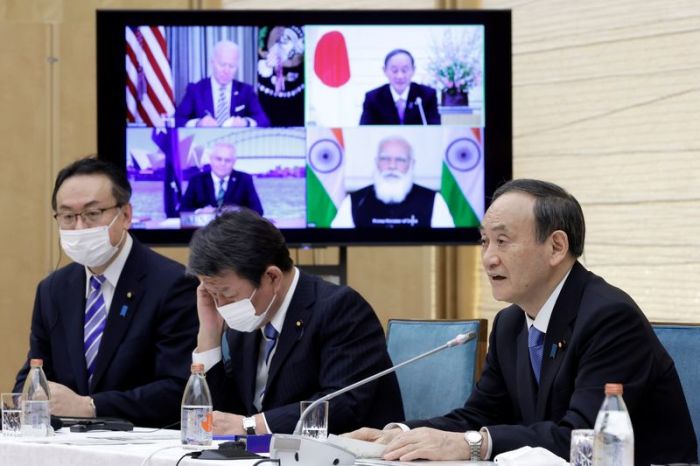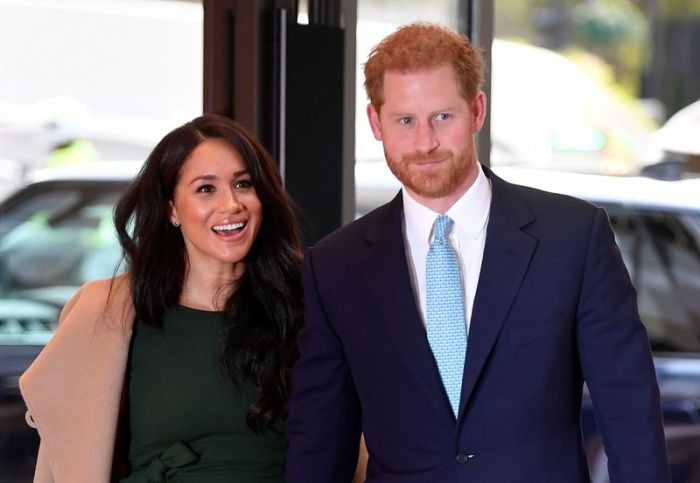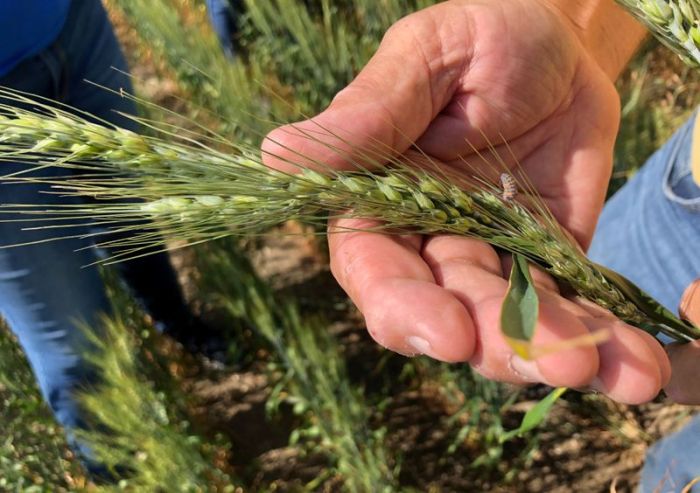(Reuters) – The leaders of the United States and allies India, Australia and Japan vowed on Friday to work together to restore democracy in Myanmar, where violence has escalated as coup leaders try to disrupt a sweeping movement of protests and civil disobedience.
Inside Myanmar, security forces pressed on with a crackdown on opposition to the army’s Feb. 1 takeover. In at least one case, they forced patients out of a hospital.
A day after 12 people were killed in one of the bloodiest days since the coup, former colonial power Britain warned its citizens to leave, saying “political tension and unrest are widespread since the military takeover and levels of violence are rising”.
The coup in Myanmar, where the military has close ties to China, is a major early test for new U.S. President Joe Biden.
His administration flagged Friday’s virtual meeting with the Indian, Japanese and Australian leaders, the first official leaders’ summit of a group known as the Quad, as part of a push to demonstrate a renewed U.S. commitment to regional security.
“As long-standing supporters of Myanmar and its people, we emphasise the urgent need to restore democracy and the priority of strengthening democratic resilience,” the four leaders said in a statement released by the White House.
More than 70 protesters have now been killed in the Southeast Asian nation since the military seized power, the Assistance Association for Political Prisoners (AAPP) advocacy group said.
Memorials were held for some of them on Friday, including one man whose family said his body had been taken by the security forces and not returned.
A spokesman for the junta did not answer phone calls from Reuters seeking comment.
South Korea said on Friday it would suspend defence exchanges and reconsider development aid to Myanmar because of the violence. The Kremlin said Russia, which has close ties to Myanmar’s military, was concerned over the mounting violence and was “analysing” whether to suspend military-technical cooperation.
“We evaluate the situation as alarming, and we are concerned about the information about the growing number of civilian casualties coming from there,” Kremlin Spokesman Dmitry Peskov was quoted by the TASS news agency as saying.
Protests were held in Yangon, Myanmar’s biggest city, and several other towns on Friday, photographs posted on social media by witnesses and news organisations showed. Many were dispersed by security forces.
Poland’s foreign ministry said a Polish journalist was arrested, the second foreign reporter to be detained. A Japanese journalist was briefly held while covering a protest.
Riot police and armed soldiers entered the general hospital in Hakha, in the western Chin state, forcing all 30 patients to leave and evicting staff from on-site housing, said local activist Salai Lian.
VIGIL
Soldiers have been occupying hospitals and universities across Myanmar as they try to quash a civil disobedience movement that started with government employees such as doctors and teachers but has expanded into a general strike that has paralysed many sectors of the economy.
In the evening, large crowds gathered for evening vigils. In Yangon, the commercial capital, they lit candles in the shape of a three-finger salute, the symbol of the movement, while saffron-robed monks gathered outside a pagoda in the northern Sagaing region.
The country has been in crisis since the army ousted Aung San Suu Kyi’s elected government last month, detained her and set up a ruling junta of generals.
Junta spokesman Brigadier General Zaw Min Tun said on Thursday Suu Kyi had accepted illegal payments, adding corruption charges to a series of more minor accusations against her, such as illegally importing six walkie-talkie radios.
“This accusation is the most hilarious joke,” Suu Kyi’s lawyer Khin Maung Zaw said on social media on Friday. “She might have other weaknesses but she doesn’t have weakness in moral principle.”
U.N. human rights investigator Thomas Andrews on Friday dismissed as “absurd” comments by a senior Myanmar official that authorities were exercising “utmost restraint”. Addressing the U.N. Human Rights Council in Geneva, he called for a united approach to “strip away the junta’s sense of impunity.”
(Reporting by Reuters staff; Writing by Ed Davies, Raju Gopalakrishnan, and Poppy McPherson; Editing by Lincoln Feast, Clarence Fernandez, Catherine Evans and Peter Graff)





























